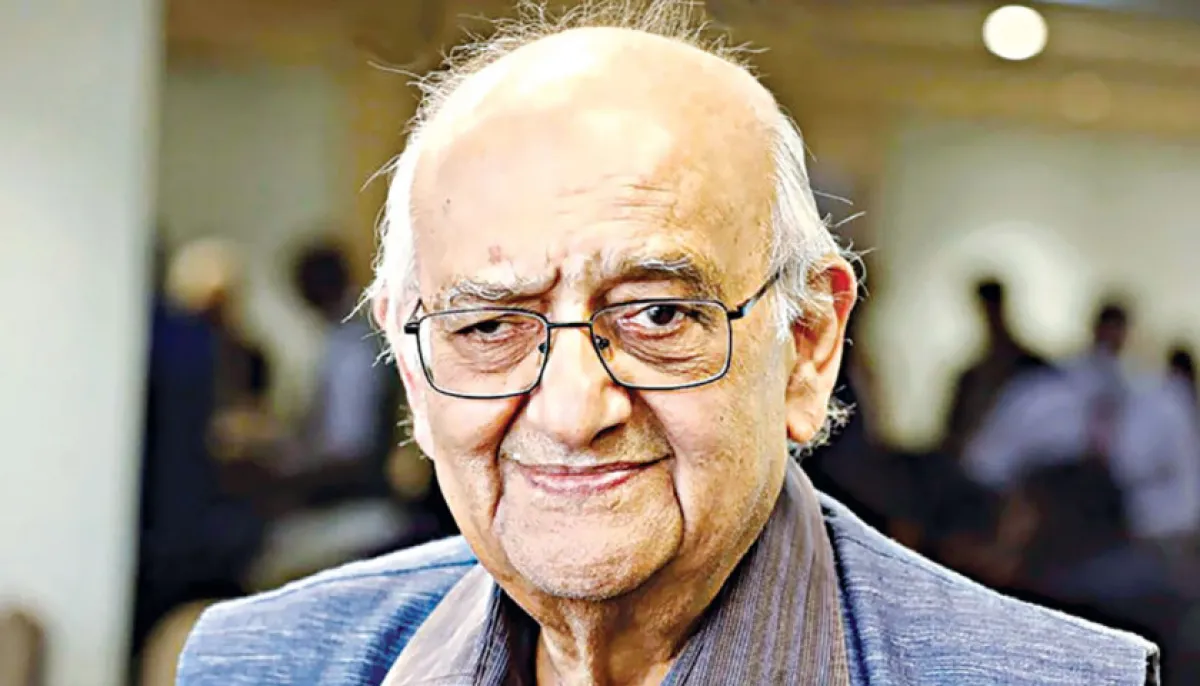
Disparities in the country's educational system have widened over the years and more social conflict lies ahead if the gap is not reduced, renowned economist Prof Rehman Sobhan has said.
"Sadly, Bangladesh, notwithstanding the transformative changes which have taken place in our society and economy, has seen disparities in our educational system widen over the years," the chairman of the Centre for Policy Dialogue (CPD) said.
This has caused social and political injustices which have disfigured the country's political journey, he said while delivering a lecture in honour of Bishwo Shahitto Kendro founder Prof Abdullah Abu Sayeed.
Bishwo Shahitto Kendro Prakton Savya Sangha, an association of the Kendro's alumni, organised the lecture titled "Democratising Education: Pathways to a Just Society" at the Kendro in the city.
"There are many sources of inequality, 'Boishommo' [discrimination], but in my view, the disparities in access to education remain one of the most pernicious factors," said Prof Sobhan.
"… If we cannot close this divide in our education, more social conflict lies ahead of us," he said.
He said many countries, including those in Europe, East and South East Asia, as well as Cuba in the Americas, have built their educational system on more democratic principles.
And these societies have also emerged as more efficient and productive societies, with higher GDP growth rates, high per capita incomes and the most impressive human development indicators, Prof Sobhan said.
He said that the distinguishing feature of the educational system in many European countries was the move to universalise the provision of quality public education.
Children from working class families, if they are talented, could enter well-known universities, whatever may be the economic circumstances of their parents. The offspring of a prime minister and business elite or workers and schoolteachers attend a common school system in these countries.
In countries like China, Vietnam, Japan, Singapore, South Korea and Taiwan, a common school system is the preferred mode of choice for public education.
But in Bangladesh, the education system is trifurcated between private, public, and religious school systems catering to different social and economic classes.
Prof Sobhan said English medium schools in Bangladesh have proliferated. International English medium schools, once designed to serve expatriate residents in Bangladesh, are now largely occupied by children of the Bangladeshi elite. Many local English medium schools cater to the upper middle-classes and some of them now drawing in the lower middle-class and even children from the working class.
There are a few better-quality Bangla medium schools such as the cadet colleges and some private schools serving the middle class and lower middle-class children of professionals or civil servants.
The largest number of schools, providing education to children of the lower middle- and working-class in the rural and urban areas, are mostly run by the state, but some are operated privately.
With the elite sending their children abroad and the next tier sending their children to the private universities, the principal casualties of such a system have been the public universities, Prof Sobhan said.
Even renowned universities largely cater to lower income households who cannot afford to pay fees to the "profit-making" private universities, he said.
The governance failures in the public universities, politicisation of the administration and teaching faculties, and the domination of the students' bodies have corrupted the higher education system to a level where surgical intervention may be needed to restore both administrative discipline and quality education, he said.
"Today Bangladesh's ruling class no longer have any stake in improving the quality of public education because their children or grandchildren have been, are being, or will be expected to be educated in quality English medium private schools and universities."
Prof Sobhan proposed making it mandatory for all candidates of the national polls to demonstrate their children are being educated in Bangla medium schools.
He recommended setting a goal to re-build the public education system that provides quality education at least to the level of cadet colleges.
He also recommended raising the number of seats in the cadet colleges as well as top state and private schools to allow entrance of children of low-income households through scholarships.
He proposed to bifurcate one high-quality secondary school in every upazila into general and technical sections which would exclusively cater to lower income households.
Furthermore, he suggested tripling the allocation for education in the national budget to at least 5 percent of the GDP.
However, this large investment in education would only be meaningful if there is a quantum advancement in the quality of governance in the education system, Prof Sobhan added.
Prof Abu Sayeed said it is hard to have democracy in the society and state if the education system is not democratised.
Unfortunately, politicians do not listen to what educated people say and expert opinion does not have any place in politics, he added.
Prof Rounaq Jahan, distinguished fellow of CPD; Prof Mustafizur Rahman, executive director of CPD; Dhaka University Prof MM Akash; Mahfuz Anam, editor and publisher of The Daily Star; and Ala Uddin Ahmad, CEO of Metlife Bangladesh also spoke at the programme.
source: daily Star
